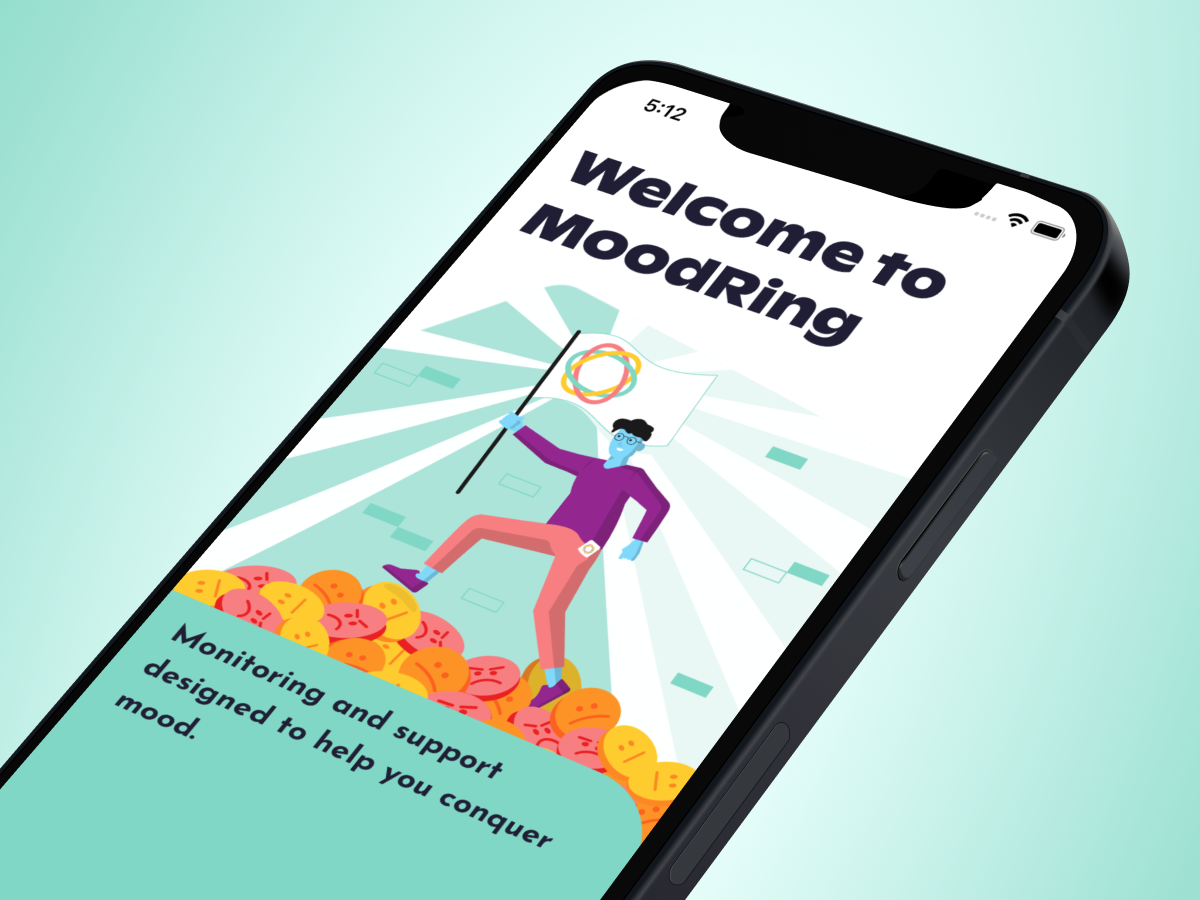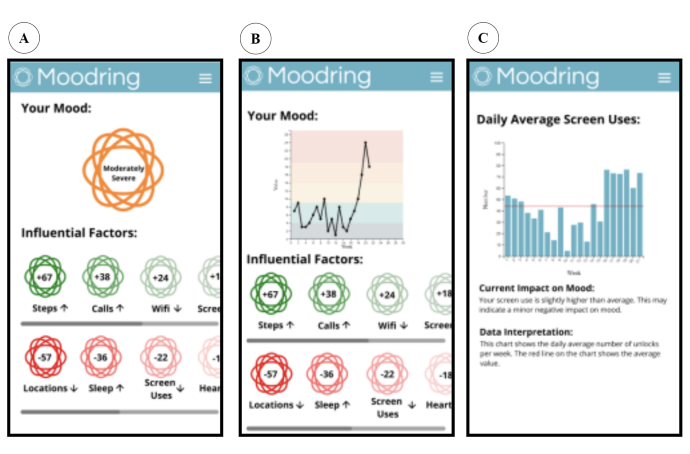
Adolescent depression and suicide are increasingly prominent health issues that require thorough diagnosis, assessment and treatment initiatives by pediatric health care. Minimal reassessment and follow up care of adolescents’ depression can lead to worsening symptoms, increased costs to the child’s health, and increased healthcare utilization. The aim of this study is to use passive sensing and machine learning to monitor adolescent’s daily behavior patterns and provide constant indicators for changes in depressive symptoms. This study will develop a machine learning pipeline from adolescents’ smartphone sensor and activity tracker data and determine the reliability of using passive sensing to predict self-reported depressive symptoms. A mobile application, MoodRing, will be developed from the machine learning pipeline to display health feedback to adolescents and parents, provide just-in-time self-management interventions, and update healthcare professionals for more efficient clinical decision-making and patient care.
Contact
If you feel like your skills and interests are aligned with this project, please reach out to Matt Clark to get involved!Publications
2024
2022

2021




